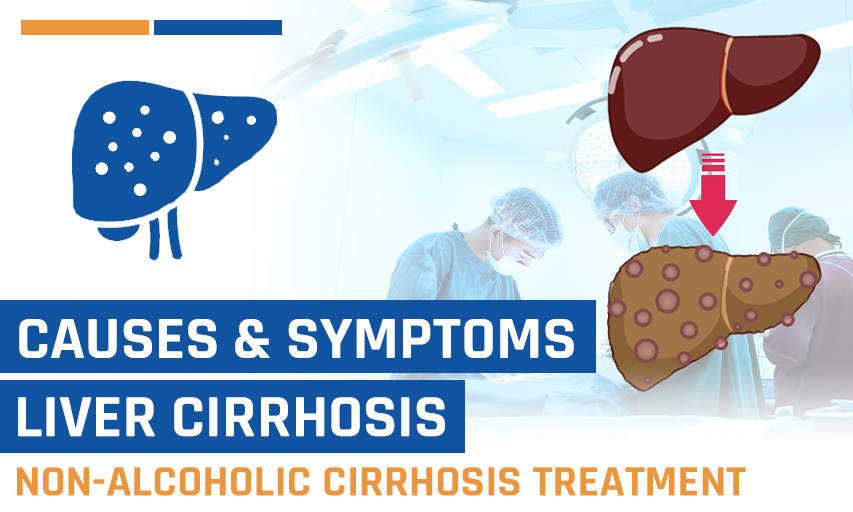How Long Do People Live with a Kidney Transplant?
The kidney transplant surgery is a second shot of life for many patients. The procedure offers a number of advantages for patients with kidney failure, including increased independence and the ability to lead an active lifestyle. The greatest benefit of a kidney transplant surgery, though, is the potential for a longer life for those suffering from renal failure.
Several factors can influence the success of a kidney transplant surgery, though, including the quality of the donated kidney, the kidney transplant recipient's overall health, post-transplant care, and follow-up treatments. While every case is unique, the question of ’How long do people live with a kidney transplant?’ is very commonly asked. This blog will answer the question for you and tell you all about the kidney transplant requirements and the factors affecting the longevity of the new kidney.
What is a Kidney Transplant?
A kidney transplant surgery is a procedure that replaces a diseased kidney with a healthy one to treat kidney failure. Your transplanted kidney, after being inserted, will take the place of your original one and start performing the functions of the failing organ after it is connected.
A kidney's primary duties are filtering blood and excreting waste materials, minerals, and other liquids from the blood through urine production.
Oftentimes waste builds up and the dangerous fluid levels in the body rise when the kidney stops filtering correctly and ceases working as it should. It can lead to high blood pressure and renal failure, which can be fatal and is termed end-stage kidney disease.
Renal failure is characterised by the kidneys no longer carrying out at least 90% of their typical tasks.
Dialysis and kidney transplantation are the two treatment methods available for end-stage renal failure. A machine filters the patient's blood during dialysis to eliminate waste. For the dialysis treatment, patients must visit a dialysis facility 2-3 times a week. Unlike a kidney transplant, dialysis cannot treat or substitute kidney functions.
How Long Do People Live With a Kidney Transplant?
Studies show that patients who receive a kidney transplant before starting dialysis tend to live 15 to 20 years longer compared to those who rely on dialysis, which has an average life expectancy of only about five years.
On an average, a kidney from a deceased donor lasts between 8 to 12 years, while a kidney from a living donor can function well for 15 to 20 years. Younger patients with renal disease benefit the most from a kidney transplant, though even patients as old as 75 can gain an additional five years of life after a transplant compared to continuing on dialysis.
Because donated kidneys usually last for around 15 to 20 years, patients may be placed on a waitlist if their transplanted kidney fails. However, receiving a second or third kidney transplant is more challenging. To ensure your transplanted kidney lasts as long as possible, it's crucial to take proper care and follow post-transplant guidelines.
What Are the Factors Affecting How Long a Kidney Transplant Lasts?
There is a list of factors that can affect how long a kidney transplant lasts. Some are:
■ Donor-related factors
The survival of the kidney graft is highly dependent on the source of the donor's kidney. Living donors and dead donors are the two primary categories of kidney donors. Compared to transplants from deceased donors, living donor transplants often result in better results and more longevity because of shorter cold ischaemia times and higher-quality organs. Age, health, and donor & receiver compatibility are other variables affecting a transplant's survival.
■ Kidney transplant recipient factors
A kidney transplant recipient's general health and medical background are significant predictors of transplant survival. The longevity of a transplanted kidney can be impacted by aspects including age, pre-existing medical disorders (such as diabetes or heart disease), and adherence to post-transplant care and drug regimens.
■ Transplant Complications
The complications after a kidney transplant surgery may impact the lifeline of the transplanted kidney. Episodes of rejection, infections, problems following surgery, and immunosuppressive drug side effects are some of these issues. To maximise the benefits of a transplant, one must take steps to identify problems.
■ Transplant Rejection
Rejection happens when the recipient's immune system attacks the transplanted kidney after it detects it as alien. Immunosuppressive drug changes can frequently effectively cure acute rejection events, but persistent rejection can permanently harm a kidney that has undergone transplantation.
■ Medical Compliance
For a kidney transplant surgery to be successful, immunosuppressive drug compliance is essential. These drugs suppress the recipient's immune system to prevent rejection, although rigorous adherence is necessary to prevent rejection events. The risk of rejection or transplant failure might rise if treatment regimens are not followed.
■ Immunosuppressant
To avoid rejection following a kidney transplant, patients must take immunosuppressive drugs for the rest of their lives. The selection and efficacy of these drugs are essential for transplant survival. Each person's immunosuppressive treatment is designed to balance immune system suppression to prevent rejection with a low risk of infection and other problems. Graft survival rates have greatly increased over time with improvements in immunosuppressive therapy.
How to Make a Kidney Transplant Last Longer?
To make your kidney transplant last longer, follow your kidney transplant surgeon’s directions exactly at all times. The following are some guiding principles:
■ Take time to rest
After the kidney transplant surgery, take at least six to eight weeks off from activities to allow your body to heal properly. Avoid lifting anything heavier than 20 pounds for two to three months, and don’t lift more than 40 pounds for four to six months.
■ Avoid contact sports
Sports that involve physical contact can risk injury to your new kidney. If you're unsure about whether a specific activity or sport is safe, consult your doctor.
■ Refrain from driving
Avoid driving for at least six weeks post-surgery to make sure that you’ve fully recovered and are able to react quickly in any situation.
■ Start with gentle exercises
Your doctor will likely recommend beginning with stretches and walking to ease your body back into activity. As your incision heals, you can gradually introduce activities like jogging, hiking, biking, tennis, golf, swimming, and aerobics to regain strength and endurance.
Bottom Line
So, how long do people live with a kidney transplant? A kidney transplant's lifetime might vary based on several circumstances. A healthy kidney transplant often lasts for around 10 to 20 years or longer. For the transplanted kidney to live as long as possible, compatibility between the donor and recipient, observance of post-transplant care, and treatment of possible problems are essential.
Hope exists for further enhancing the results and prolonging kidney transplants' lives because of ongoing improvements in medical technology, research, and alternative transplantation techniques. Regular follow-up care and discussion with your doctors are important to monitor kidney function and treat any possible issues.




















Be First To Comment
Leave a Comment